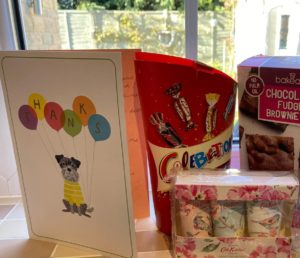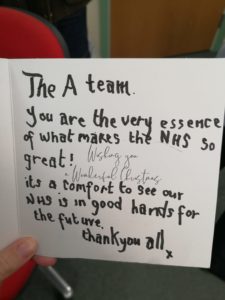Occupational Therapist
OT'a assess and treat individuals struggling with their daily routines due to mental and physical health conditions.

Stroke
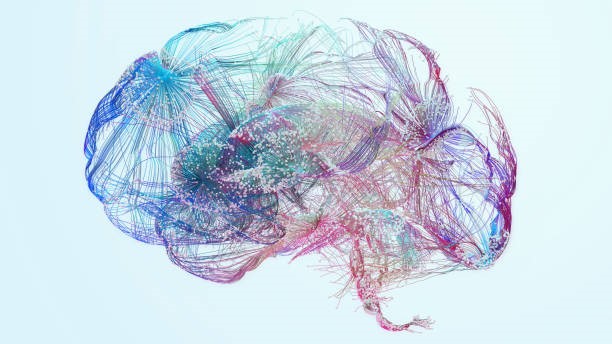
A Stroke occurs when the blood supply to the brain is interrupted. This could be as a result of the blood supply becoming blocked due to a clot (Ischaemic Stroke) or due to a bleed in the brain caused by a burst blood vessel (Haemorrhagic Stroke). A Transient Ischaemic Attack (TIA) is a temporary interruption to the blood supply with symptoms resolving within 24 hours.
Although Stroke is more common in older age, it can affect people of any age; even Children and babies. The aftereffects of a Stroke can be wide ranging depending on the type of Stroke, treatment received and each person’s unique circumstances however it can have social, physical, emotional, cognitive and spiritual consequences.
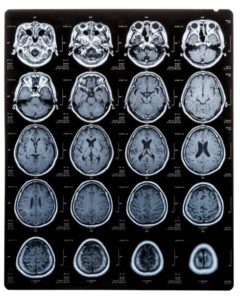
It is wonderful to see such dedicated staff members who work so hard to ensure the service is patient centred, goal driven and holistic.
Email from locum physio.
Allied Health Professions are critical to a person’s care as they move through the Stroke Pathway.
Paramedics will often be the first AHP involved in the pathway and will complete a validated screening tool for all patients suspected of having a Stroke or TIA and liaise with senior stroke clinician’s to consider whether the person meets the criteria for Thrombolysis (medicine which dissolves the blood clot and restore blood flow to the brain) or Thrombectomy (surgical removal of a blood clot) and will transport the person to the nearest Acute Stroke Centre as quickly as possible to ensure that they can access timely treatment.
Radiographers ensure that there is rapid access to neurovascular imaging of the brain and vessels supplying it to underpin diagnosis and management decisions.
If a person should require Neurosurgical intervention as part of the medical management of the Stroke, Operating Department Practitioner’s will prepare the necessary equipment and instruments required, support the neurosurgeons during the procedure and support the person during their time in the recovery room and assess fitness to return to the ward.
Physiotherapist’s, Occupational Therapists, Speech and Language Therapist’s and Dietician’s are core members of the in-patient and community Stroke rehabilitation services providing assessment and rehabilitation of movement, functional activities, cognition, vison, communication, swallowing and nutrition. They work together with the person and other core members of the multi-disciplinary team such as Nurses, Consultants, Psychologists and Social Workers to achieve the person’s goals. The person may transition to an in-patient rehabilitation setting or be supported to return home or to a care/nursing home facility with support from an integrated community stroke service.
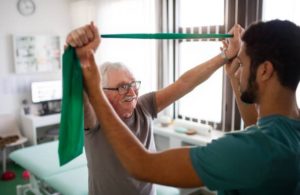
Orthoptists can assess the person while they are an in-patient or as an out-patient for diagnosis and treatment of visual field loss, reduced vision, eye movement problems or perceptual problems that may have occurred as a result of a Stroke. They may work closely with Occupational Therapists, Medical Team and Psychologists.
Orthotists use their skills in biomechanics, material science and anatomy and physiology to design and issue specialist orthotics to improve a person’s ability to function. They often work closely with Physiotherapists and Occupational Therapists. Some common reasons why orthotics maybe required for a person after a Stroke are to support them to be able to lift their foot to improve their ability to walk and reduce the risk of falls, to protect their shoulder which may become vulnerable and painful due to muscle weakness and to provide a prolonged stretch to their wrist and fingers.
People maybe referred to a Podiatrist for advice on footwear and footcare if they have reduced sensation and swelling in their feet following the Stroke. Podiatrists can also provide insoles and orthotics for the foot to improve function. They are also able to provide nail and skin care for people who are no longer able to do this for themselves after a Stroke and also have other co-morbidities such as Diabetes.
Art, Drama and Music Therapists can utilise creative arts combined with psychotherapy to support a person with the emotional, cognitive and social sequelae of Stroke. Creative Therapy is particularly effective for those people who struggle to access the more traditional talking therapies following a Stroke.
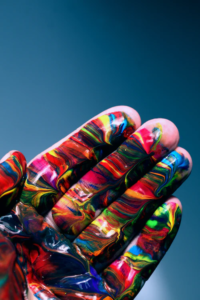
Find out more about each of the professions via the links at the end of the article.
Healthcare roles working in Stroke
To the A Team. You are the very essence of what makes the NHS so great! It is a comfort to see our NHS is in such good hands for the future. Thank you all.
Card from patient.
Stroke is a truly fascinating and rewarding specialism to work in clinically with a huge variety of presentations and situations, it leaves no room for boredom. It also provides opportunity to utilise cutting edge technologies such as Artificial Intelligence, Robotics, Virtual Reality and electrical stimulation. There are a number of clinical and service guidelines to ensure a high standard of care.
You will never stop learning in Stroke, from Student to Advanced Practice and beyond there are lots of opportunities to develop. The Stroke Specific Education Framework Stroke Specific Education Framework (SSEF) | Home (stroke-education.org.uk) is an online toolkit which details the knowledge and skills required for those working in Stroke as well as free resources.
The Stroke Star Competencies Core Competencies – CHSS eLearning is an e-learning resource which provides a wide range of core skills and knowledge for professionals working in Stroke. There is also a yearly UK Stroke Forum Conference as well as numerous in-house, regional and professional learning opportunities available.
Pursuing a career in Stroke will provide a fertile ground for growing your interest, abilities and skills in research. From appraising the wide evidence base and implementing this into practice, to submitting a poster abstract to conferences or undertaking your own research project, there is something for everyone to help push forwards the aims of the National Allied Health Professions’ Research Strategy in England.
The Stroke Association are passionate about Research into Stroke and offer post-graduate fellowships to AHP’s if this is an avenue you wanted to take: Postgraduate Fellowship and Clinical-Academic Postgraduate Fellowships 2022-23 | Stroke Association
As an AHP working in Stroke Rehabilitation you will have the ability to lead at all levels. This could be leading on a person’s care, leading multi-disciplinary team meetings, inspiring others, starting quality improvement projects to leading a team, service or leading across organisational and regional boundaries.
The regional integrated stroke delivery networks (ISDN’s) provide a strong local leadership which feeds into that national stroke programme. AHP’s can take on key leadership roles within the ISDN’s and help to influence and improve Stroke care on a regional and national level.
The national stroke programme recognise the importance of culture and leadership within successful Stroke Teams and this is evidenced by their investment in GIRFT Stroke Leadership Academy.
*patient and I want to thank you for all your care, dedication and hard work during the past six months. Words can never express the debt we owe to you. Your constant professionalism, expertise and good humour have been a source of encouragement, inspiration and great fun to us. We do appreciate now that you are such a support for not only the patient but also the carer. *Patient has come alive again during your visits and has realised that every little step of progress adds up to your goal. We are not daft enough to expect a miracle cure; little by little is far more effective. We are learning to adjust our lives to our new situation, even if *patient’s immediate response is how much?! Thank you so much for all your help, advice, encouragement, gardening advice and especially the laughs. We are eternally grateful to you.
Card from patient and Wife
